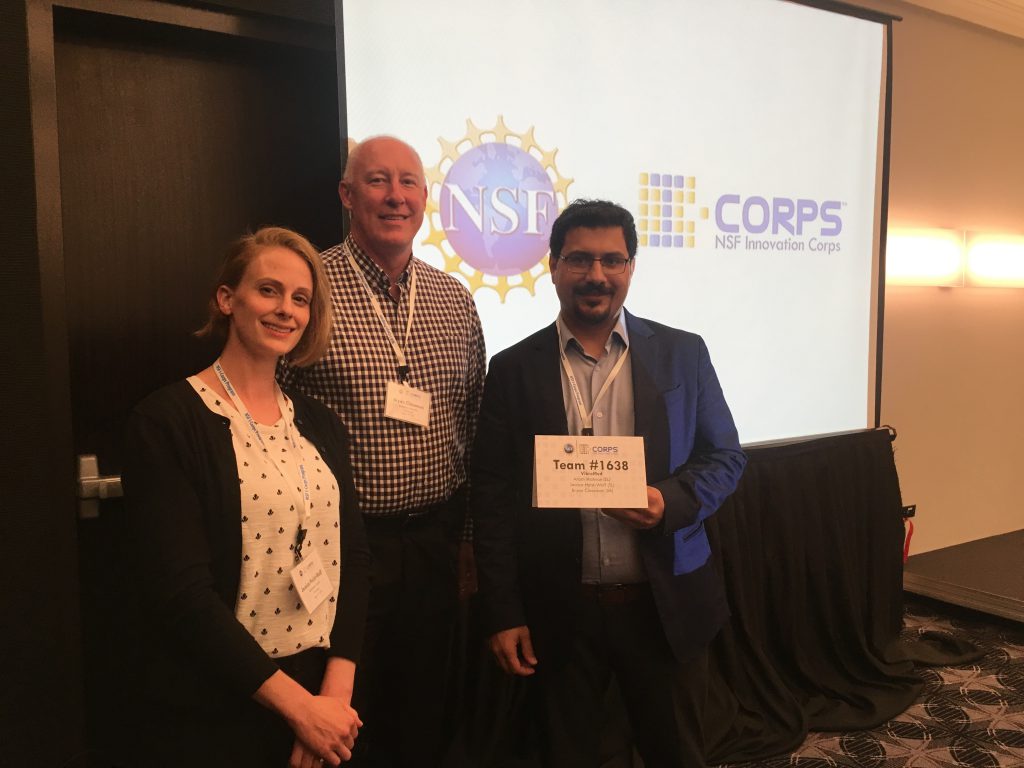Kinesiology’s Human Sensorimotor Control Laboratory (HSCL) members Arash Mahnan, PhD candidate, and Jessica Holst-Wolf, PhD, postdoctoral associate, recently completed a seven-week program through the National Science Foundation Innovation Corps (I-Corps). I-Corps is a curriculum designed to prepare scientists and engineers nationwide to extend their focus beyond the university laboratory and explore the economic and societal benefits of NSF-funded, basic-research projects that are ready to move toward commercialization. Participants form teams consisting of an entrepreneurial lead, principle investigator, co-technical lead, and industry mentor. The HSCL team consisted of Mahnan (entrepreneurial lead), Prof. Jürgen Konczak (principal investigator), Holst-Wolf (co-technical lead), and industry mentor Bryan Claseman.

“This was a life-changing experience for me,” said Mahnan. “And thanks to my team members, Bryan Claseman and Jessica Holst-Wolf, we received the Spirit of the I-Corps Award for excellence in embracing the I-Corps process and following the data anywhere it leads.”
Through a competitive process, NSF awards funds to support participants in learning to identify valuable product opportunities that can emerge from academic research, and gain skills in entrepreneurship through working with established entrepreneurs. The HSC lab has been working on developing devices to help those with movement disorders, specifically dystonia and stroke.
As part of the program, the team conducted informal interviews with medical providers, patients, and caregivers to understand the current standards of care and best practices in treatment procedures. They also met with regulatory and reimbursement specialists as well as start-up companies to find out the optimum pathway to commercialization and its associated challenges. “Our team conducted 106 in-person interviews over the last 7 weeks for which I traveled to 15 clinics all over the US,” says Mahnan. “I also spoke with patients and physicians from Mexico, UK, and Iran.”
Holst-Wolf observed, “Despite our differing backgrounds, each member of our team found the I-Corps program to be an incredible learning experience. After completing the program, we have a far better understanding of how to get our research out of the lab so we can help the individuals with these disorders.”
Mahnan created a 2-minute video showing the outcome of their work, available here.



